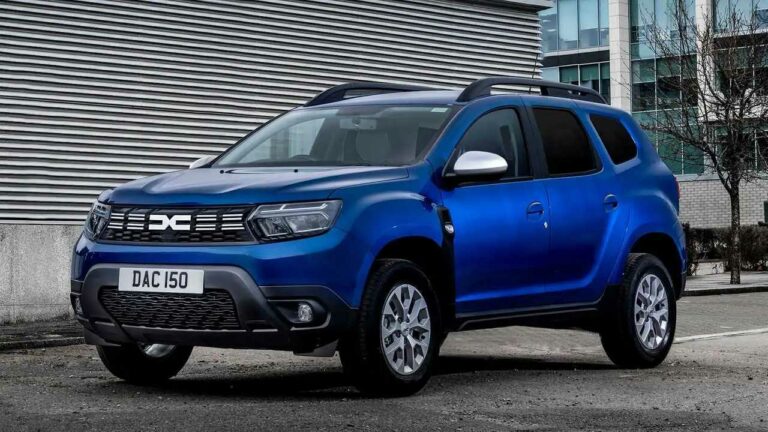Car Brands Sold In US: Navigating the Automotive Landscape
Car Brands Sold In US: Navigating the Automotive Landscape cars.truckstrend.com
The United States automotive market is a vibrant, diverse, and highly competitive arena, offering consumers an unparalleled breadth of choices. From fuel-efficient compacts to powerful pickup trucks, luxurious sedans to rugged SUVs, the sheer number of car brands sold in the US can be overwhelming. Understanding these brands – their origins, reputations, specialties, and target demographics – is crucial for anyone looking to make an informed purchasing decision. This comprehensive guide will delve into the vast array of car brands available, offering insights into their unique characteristics and helping you navigate this dynamic landscape.
The Global Melting Pot of American Garages
Car Brands Sold In US: Navigating the Automotive Landscape
The "Car Brands Sold In US" isn’t just about domestic manufacturers; it’s a global tapestry woven with threads from Asia, Europe, and increasingly, new contenders from emerging markets. This diversity enriches the market, fostering innovation and competition, ultimately benefiting the consumer through a wider range of features, technologies, and price points. Whether you prioritize reliability, performance, luxury, safety, or value, there’s a brand and a model tailored to your specific needs and desires.
Japanese Brands: The Pillars of Reliability and Innovation
Japanese car brands have long dominated the US market, building a reputation for unparalleled reliability, fuel efficiency, and practical innovation. Their enduring popularity stems from a consistent focus on quality, low maintenance costs, and high resale values.
- Toyota: A perennial leader, Toyota is synonymous with durability and value. From the ubiquitous Camry and Corolla to the rugged Tacoma and RAV4, Toyota offers a vast lineup. Its luxury division, Lexus, provides premium comfort and sophisticated technology with the same underlying reliability.
- Honda: Known for its refined engines, excellent fuel economy, and fun-to-drive dynamics, Honda is a strong competitor in segments like sedans (Civic, Accord) and SUVs (CR-V, Pilot). Its luxury arm, Acura, blends performance with upscale features.
- Nissan: Offers a wide range of vehicles, from the budget-friendly Versa to the popular Rogue SUV and Titan pickup truck. Nissan has also been a pioneer in electric vehicles with the Leaf. Infiniti serves as Nissan’s luxury brand, focusing on distinctive design and performance.
- Subaru: Celebrated for its standard all-wheel-drive (AWD) across most of its lineup, Subaru appeals to those seeking safety, utility, and outdoor adventure. Models like the Outback, Forester, and Crosstrek are particularly popular in regions with challenging weather.
- Mazda: Distinguishes itself with a focus on driving dynamics and premium design, often described as "affordable luxury." Mazda cars and SUVs (e.g., Mazda3, CX-5) offer engaging handling and upscale interiors.

American Brands: Power, Practicality, and Patriotism
American car brands have undergone significant transformations, moving beyond their traditional strengths in large sedans and muscle cars to dominate the truck and SUV segments. They also lead the charge in electric vehicle innovation.
- Ford: A titan of the industry, Ford is renowned for its F-Series pickup trucks (America’s best-selling vehicle for decades) and popular SUVs like the Explorer and Escape. Ford is also a key player in the EV market with the Mustang Mach-E and F-150 Lightning.
- Chevrolet (Chevy): General Motors’ flagship brand, Chevrolet offers a diverse portfolio including the Silverado pickup, Tahoe and Traverse SUVs, and iconic sports cars like the Corvette and Camaro. Chevy is also expanding its EV offerings.
- Ram: Spun off from Dodge, Ram focuses exclusively on trucks and commercial vehicles, known for their rugged capability, powerful engines, and increasingly luxurious interiors.
- GMC: Also part of General Motors, GMC positions itself as a more upscale, professional-grade alternative to Chevrolet, offering premium trucks and SUVs like the Sierra and Yukon.
- Jeep: An iconic brand synonymous with off-road capability and adventure. Models like the Wrangler, Grand Cherokee, and Gladiator embody its rugged spirit.
- Tesla: The undisputed leader in electric vehicles, Tesla has revolutionized the auto industry with its long-range EVs (Model S, 3, X, Y) and cutting-edge technology, including advanced autonomous driving features.
- Cadillac: General Motors’ luxury brand, Cadillac aims to compete with European luxury marques, offering sophisticated sedans and SUVs (Escalade, XT5) with advanced technology and bold styling.
- Lincoln: Ford’s luxury division, Lincoln focuses on serene, comfortable, and technologically advanced SUVs (Navigator, Aviator, Corsair) with a distinctly American luxury feel.
- Chrysler: Currently with a more limited lineup, Chrysler is known for its Pacifica minivan, a segment leader.
- Dodge: Specializes in performance vehicles, known for its powerful muscle cars like the Challenger and Charger, and the durable Durango SUV.
- Buick: General Motors’ premium brand, Buick offers a lineup of comfortable and stylish SUVs, appealing to those seeking quiet refinement and practicality.


German Brands: Engineering Excellence and Luxury
German automotive brands are globally celebrated for their precision engineering, high-performance capabilities, advanced technology, and luxurious interiors. They set benchmarks in driving dynamics and perceived quality.
- Mercedes-Benz: A pioneer in automotive history, Mercedes-Benz is synonymous with ultimate luxury, comfort, and sophisticated technology across its sedans (C-Class, E-Class, S-Class) and extensive SUV lineup.
- BMW: Known for its "Ultimate Driving Machine" philosophy, BMW excels in performance, agile handling, and driver engagement. Its lineup spans sedans, coupes, and a growing range of X-series SUVs.
- Audi: Part of the Volkswagen Group, Audi combines sophisticated design, advanced technology (like Quattro AWD), and refined driving experiences. Its lineup includes stylish sedans, SUVs, and performance-oriented RS models.
- Porsche: The epitome of German sports car engineering, Porsche is renowned for its iconic 911, Boxster, Cayman, and its highly successful Cayenne and Macan SUVs, all delivering exhilarating performance.
- Volkswagen (VW): Offers a blend of German engineering and everyday practicality. VW provides a range of sedans (Jetta), SUVs (Tiguan, Atlas), and increasingly, electric vehicles (ID.4).
Korean Brands: Value, Style, and Rapid Growth
Korean car brands have made remarkable strides in recent decades, shedding their budget-car image to offer compelling vehicles with stylish designs, generous features, and increasingly competitive quality and reliability.
- Hyundai: Has transformed its image, offering a diverse range of vehicles known for their value, modern design, and comprehensive warranties. Models include the Elantra, Sonata, Tucson, and Palisade.
- Kia: Sister brand to Hyundai, Kia has also seen a dramatic resurgence, offering stylish designs, impressive features, and excellent value. Popular models include the Forte, K5, Seltos, Telluride, and a growing EV lineup.
- Genesis: Hyundai’s luxury marque, Genesis has quickly established itself as a serious contender in the luxury segment, offering elegant designs, opulent interiors, and strong performance at competitive prices.
European (Non-German) Brands: Niche Appeal and Distinctive Character
Beyond the dominant German marques, several other European brands offer unique propositions, often focusing on specific attributes like safety, avant-garde design, or specialized performance.
- Volvo: A Swedish brand synonymous with safety and minimalist, elegant design. Volvo offers a range of sophisticated sedans and SUVs known for their advanced safety features and comfortable, Scandinavian-inspired interiors.
- Land Rover: A British brand specializing in luxury SUVs with legendary off-road capabilities. Models like the Range Rover, Discovery, and Defender combine ruggedness with opulent comfort.
- Jaguar: Another British brand, Jaguar is known for its elegant sedans, sporty coupes, and luxurious SUVs, often emphasizing performance and a distinct British charm.
- Fiat: An Italian brand primarily known in the US for its small, stylish 500 city car and its performance-oriented Abarth variants.
- Alfa Romeo: An Italian brand renowned for its passionate design, exhilarating driving dynamics, and rich motorsport heritage. Offers models like the Giulia sedan and Stelvio SUV.
- Mini: A British brand (owned by BMW) celebrated for its distinctive retro styling, go-kart-like handling, and customizable options.
- Polestar: Volvo’s performance-oriented electric vehicle brand, focusing on minimalist design and sustainable performance.
Emerging and Niche Brands
The US market also sees the arrival of new players and specialized brands, particularly in the burgeoning EV segment. These include:
- Rivian: An American EV manufacturer focusing on electric trucks (R1T) and SUVs (R1S) with impressive off-road capabilities.
- Lucid: An American luxury EV manufacturer known for its high-performance, long-range Air sedan.
- VinFast: A Vietnamese automotive company entering the US market with a range of electric SUVs.
Understanding the US Car Market Landscape
The US car market is constantly evolving, influenced by consumer preferences, economic trends, and technological advancements.
- SUV and Truck Dominance: For years, SUVs and pickup trucks have been the preferred body styles for American consumers, driven by their versatility, cargo capacity, and perceived safety.
- The Rise of EVs: Electric vehicles are rapidly gaining traction, fueled by environmental concerns, government incentives, and advancements in battery technology and charging infrastructure.
- Brand Loyalty: Many Americans exhibit strong brand loyalty, often sticking with a particular manufacturer or even a specific model generation after generation.
- Market Segmentation: Brands carefully segment the market, targeting different demographics based on income, lifestyle, and priorities (e.g., budget, premium, luxury, performance, off-road).
Factors to Consider When Choosing a Car Brand
With such a vast array of choices, selecting the right car brand requires careful consideration. Here are key factors to ponder:
- Reliability and Durability: Research long-term reliability ratings from organizations like Consumer Reports and J.D. Power. A reliable car means fewer unexpected repairs and lower ownership costs.
- Safety Features: Prioritize brands and models with high safety ratings from the NHTSA (National Highway Traffic Safety Administration) and IIHS (Insurance Institute for Highway Safety), along with advanced driver-assistance systems (ADAS).
- Fuel Efficiency/EV Range: Consider your driving habits and fuel costs. If you drive a lot, a fuel-efficient gasoline car or an EV with sufficient range will save you money.
- Resale Value: Some brands consistently hold their value better than others, which is important if you plan to sell or trade in your car in a few years.
- Performance and Driving Dynamics: Do you prefer a sporty, engaging drive or a smooth, comfortable ride? Different brands excel in different areas.
- Technology and Infotainment: Evaluate the infotainment system, connectivity options, and available tech features.
- Budget (Purchase and Ownership): Beyond the initial purchase price, consider insurance, maintenance, repairs, and fuel costs. Luxury brands often have higher ownership costs.
- Dealership Experience and Service Network: Research the reputation of local dealerships for sales and service. A good dealership experience can significantly enhance ownership.
- Vehicle Type and Your Needs: Are you commuting solo, hauling a family, or needing off-road capability? Match the brand’s strengths to your lifestyle.
- Design and Aesthetics: While subjective, choose a brand whose design philosophy resonates with you.
Practical Advice and Actionable Insights
Navigating the multitude of car brands can be daunting, but a structured approach can simplify the process:
- Define Your Needs: Before looking at brands, list your non-negotiables: budget range, desired body style (sedan, SUV, truck), passenger capacity, must-have features (AWD, specific safety tech), and primary use (commute, family trips, off-roading).
- Research, Research, Research: Utilize reputable automotive review sites (Edmunds, Car and Driver, Kelley Blue Book), consumer watchdog organizations (Consumer Reports), and owner forums to gather information on reliability, owner satisfaction, and common issues for brands and specific models.
- Shortlist Brands and Models: Based on your needs and initial research, create a shortlist of 3-5 brands and 1-2 models per brand that seem like a good fit.
- Visit Dealerships and Test Drive: This is crucial. Drive different models from your shortlisted brands. Pay attention to comfort, visibility, handling, acceleration, braking, and how intuitive the technology is. Don’t be afraid to test multiple models and even revisit a car you liked.
- Consider Certified Pre-Owned (CPO): If budget is a concern, explore CPO programs from various brands. These vehicles typically come with extended warranties and have undergone rigorous inspections.
- Look Beyond the Brand Name: While brand reputation is important, individual models within a brand can vary. Focus on the specific model that meets your needs rather than just the brand prestige.
- Factor in Insurance and Maintenance Costs: Get insurance quotes for specific models before buying, and inquire about typical maintenance schedules and costs for the brands you’re considering.
Car Brands Sold in US: Price Segment & Key Characteristics
Below is a table providing a general overview of car brands sold in the US, categorized by their typical price segment and highlighting key characteristics. Please note that "starting MSRP range" is highly generalized for entry-level models and can vary significantly based on trim, options, and market conditions.
| Brand | Country of Origin | Typical Price Segment (Starting MSRP Range) | Key Characteristics |
|---|---|---|---|
| Toyota | Japan | Mainstream ($20k – $40k+) | Reliability, practicality, high resale value |
| Honda | Japan | Mainstream ($20k – $40k+) | Reliability, fuel efficiency, refined driving |
| Nissan | Japan | Mainstream ($18k – $45k+) | Value, diverse lineup, EV pioneer |
| Subaru | Japan | Mainstream ($24k – $40k+) | Standard AWD, safety, outdoor lifestyle |
| Mazda | Japan | Mainstream/Premium ($22k – $40k+) | Engaging driving, premium design, refined interiors |
| Lexus | Japan | Luxury ($40k – $80k+) | Reliability, comfort, refined luxury |
| Acura | Japan | Luxury ($35k – $60k+) | Sporty luxury, technology, reliability |
| Infiniti | Japan | Luxury ($40k – $70k+) | Bold design, performance, luxury |
| Ford | USA | Mainstream ($20k – $60k+) | Trucks, SUVs, performance, EV innovation |
| Chevrolet | USA | Mainstream ($20k – $60k+) | Trucks, SUVs, sports cars, diverse lineup |
| Ram | USA | Mainstream/Premium ($35k – $70k+) | Powerful trucks, comfort, capability |
| GMC | USA | Premium/Luxury ($35k – $80k+) | Upscale trucks & SUVs, professional grade |
| Jeep | USA | Mainstream/Premium ($30k – $80k+) | Off-road capability, iconic design, adventure |
| Tesla | USA | Premium/Luxury EV ($40k – $100k+) | EV innovation, cutting-edge tech, performance |
| Cadillac | USA | Luxury ($45k – $100k+) | American luxury, bold styling, advanced tech |
| Lincoln | USA | Luxury ($45k – $90k+) | Serene luxury, comfort, distinctive design |
| Chrysler | USA | Mainstream ($35k – $50k+) | Minivans, family-oriented |
| Dodge | USA | Mainstream/Performance ($30k – $80k+) | Muscle cars, performance, bold styling |
| Buick | USA | Premium ($30k – $50k+) | Quiet comfort, accessible luxury SUVs |
| Mercedes-Benz | Germany | Luxury ($45k – $150k+) | Ultimate luxury, performance, advanced tech |
| BMW | Germany | Luxury ($40k – $120k+) | Driving dynamics, performance, sporty luxury |
| Audi | Germany | Luxury ($40k – $100k+) | Sophisticated design, AWD, refined performance |
| Porsche | Germany | Luxury/Performance ($60k – $200k+) | Sports cars, exhilarating performance, prestige |
| Volkswagen | Germany | Mainstream ($25k – $50k+) | German engineering, practical, EV offerings |
| Hyundai | South Korea | Mainstream ($20k – $45k+) | Value, modern design, generous features, warranty |
| Kia | South Korea | Mainstream ($20k – $45k+) | Stylish design, value, growing EV lineup |
| Genesis | South Korea | Luxury ($40k – $70k+) | Competitive luxury, elegant design, strong value |
| Volvo | Sweden | Luxury ($40k – $70k+) | Safety, minimalist design, Scandinavian luxury |
| Land Rover | UK | Luxury ($50k – $150k+) | Off-road capability, opulent luxury |
| Jaguar | UK | Luxury ($50k – $90k+) | Elegant design, performance, British charm |
| Fiat | Italy | Mainstream/Niche ($20k – $30k+) | Small, stylish city cars, quirky |
| Alfa Romeo | Italy | Premium/Luxury ($45k – $70k+) | Passionate design, exhilarating driving |
| Mini | UK | Premium ($25k – $40k+) | Go-kart handling, iconic styling, customization |
| Polestar | Sweden | Luxury EV ($50k – $70k+) | Electric performance, minimalist design, sustainable |
| Rivian | USA | Luxury EV ($75k – $90k+) | Electric trucks & SUVs, off-road focus |
| Lucid | USA | Ultra-Luxury EV ($100k – $200k+) | Ultra-luxury EV, long range, high performance |
| VinFast | Vietnam | Mainstream/Premium EV ($40k – $60k+) | Emerging EV brand, diverse offerings |
Frequently Asked Questions (FAQ) about Car Brands Sold In US
Q1: What are the most reliable car brands sold in the US?
A1: Historically, Japanese brands like Toyota, Honda, and Lexus consistently rank high in reliability studies (e.g., from J.D. Power, Consumer Reports). Subaru and Mazda also perform very well. Korean brands like Hyundai and Kia have significantly improved their reliability ratings in recent years.
Q2: Which brands offer the best value for money?
A2: Brands like Hyundai, Kia, Mazda, and some Nissan models often provide excellent value, offering a good balance of features, quality, and competitive pricing. Subaru also offers strong value due to standard AWD and high resale values.
Q3: Are luxury cars worth the extra cost?
A3: This depends on your priorities. Luxury brands like Mercedes-Benz, BMW, Audi, Lexus, and Genesis offer superior materials, advanced technology, refined driving experiences, and often a higher level of comfort and prestige. However, they also come with higher purchase prices, insurance costs, and often more expensive maintenance. For some, the enhanced experience is worth it; for others, a well-equipped mainstream vehicle offers sufficient comfort and features.
Q4: What’s the difference between mainstream, premium, and luxury brands?
A4:
- Mainstream Brands: Focus on broad appeal, practicality, value, and reliability (e.g., Toyota, Honda, Ford, Chevrolet).
- Premium Brands: Offer a step up in materials, features, and driving dynamics from mainstream, without reaching the full luxury price point (e.g., Mazda, Subaru, Buick, some higher trims of mainstream brands).
- Luxury Brands: Emphasize high-end materials, cutting-edge technology, superior performance, brand prestige, and exceptional comfort (e.g., Mercedes-Benz, BMW, Audi, Lexus, Cadillac, Genesis).
Q5: How important is the country of origin when choosing a car brand?
A5: While a brand’s country of origin can often indicate its design philosophy, engineering priorities, and typical characteristics (e.g., German precision, Japanese reliability, American power), it’s less critical than it once was. Many "foreign" brands have manufacturing plants in the US, and global supply chains mean components come from all over the world. Focus more on the specific model’s features, reviews, and how it meets your needs, rather than just its nationality.
Conclusion
The automotive market in the United States is a testament to global innovation and consumer choice. From the time-tested reliability of Japanese manufacturers to the rugged utility of American trucks, the precision engineering of German luxury brands, and the rapid ascent of Korean value propositions, there’s a car brand and model for every taste, need, and budget. By understanding the unique strengths of each brand, considering your personal priorities, and engaging in thorough research and test drives, you can confidently navigate this vast landscape and find the perfect vehicle to fit your lifestyle. The journey of finding your next car is not just about transportation; it’s about finding a partner for the road ahead.





